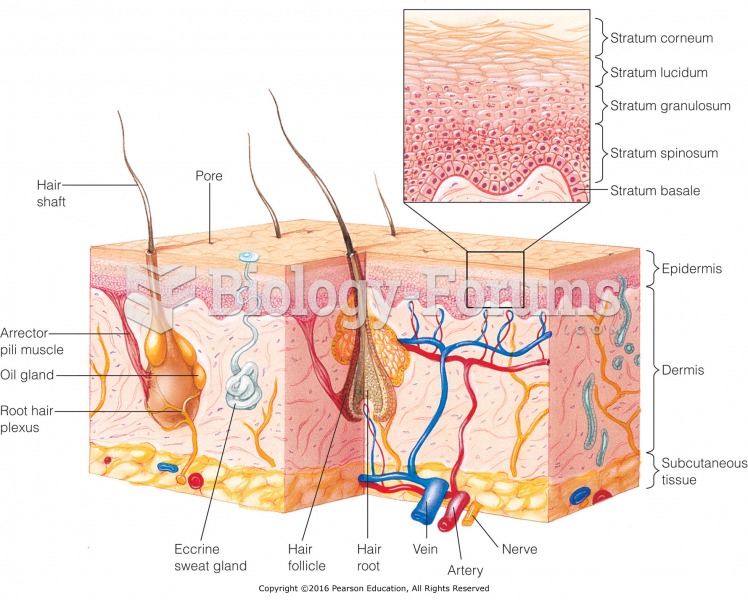|
|
|
It is difficult to obtain enough calcium without consuming milk or other dairy foods.
The first oncogene was discovered in 1970 and was termed SRC (pronounced "SARK").
The top 10 most important tips that will help you grow old gracefully include (1) quit smoking, (2) keep your weight down, (3) take supplements, (4) skip a meal each day or fast 1 day per week, (5) get a pet, (6) get medical help for chronic pain, (7) walk regularly, (8) reduce arguments, (9) put live plants in your living space, and (10) do some weight training.
The first oral chemotherapy drug for colon cancer was approved by FDA in 2001.
Stroke kills people from all ethnic backgrounds, but the people at highest risk for fatal strokes are: black men, black women, Asian men, white men, and white women.







